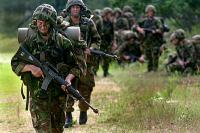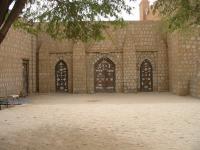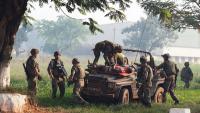-
THE PERMANENT CRISISBookshelf: Technology, Globalization and Civilizational Decline
Robert Kaplan’s new book paints a portrait of civilization in flux. Drawing insights from history, literature and art, he examines the effect of modern technology, globalization and urbanization on the decline of great powers and increasing domestic polarization.
-
-
African innovationFour African innovators selected for engineering innovation prize
Following an open, competitive, application process which saw entries from fifteen countries in sub-Saharan Africa, twelve African entrepreneurs were chosen to receive a package of six months of business training and mentoring from the U.K.’s Royal Academy of Engineering. The four finalists showing the greatest promise have now been chosen, and are in with a chance to become the overall winner. Each will receive at least £10,000 with the grand prize of £25,000 to be awarded at a ceremony in Cape Town on 1 June. A low-cost sustainable water filter system to provide clean and safe drinking water, and a service that allows African mobile phone users to switch easily between multiple mobile networks are among the four African innovations selected by the Academy.
-
-
African securityMorocco blocks opening of Ikea store after Sweden announces support for breakaway Western Sahara republic

Ikea was scheduled to open its first store in Morocco today, but the Moroccan government has blocked the opening because the store lacked a “conformity permit,” a statement from the Interior Ministry said yesterday. Earlier on Monday, a news Web site close to the Moroccan palace said the store was not allowed to open because of Sweden’s plans to recognize an independent state – to be called Sahrawi Republic — championed by the Polisario Front in the Western Sahara. Morocco claims sovereignty over the Western Sahara.
-
-
African securityU.K. to deploy troops in Somalia, South Sudan to foster “less terrorism and less migration”

British prime minister David Cameron has said that hundreds of British troops will be deployed to Somalia and South Sudan to train African peacekeeping forces in order to foster “less terrorism and less migration.” Over the years the United Kingdom has contributed to many peacekeeping missions, but now its role is largely limited to providing about 280 troops participating in the current mission in Cyprus. The United Kingdom has also given about £260 million in aid to South Sudan since the start of the civil war in December 2013.
-
-
African securityIslamist who took part in destroying Timbuktu monuments sent to the Hague to face charges

An Islamic extremist charged with involvement in the destruction of religious buildings in the historic city of Timbuktu in Mali in 2012 has been arrested Saturday and sent to the International Criminal Court (ICC). Legal scholars note that Ahmad Al Mahdi Al Faqi, aka Abu Tourab, is the first suspect in ICC custody charged with destroying religious or historical monuments, which is a war crime. The court said in a statement he was a member of Ansar Dine, an Islamic extremist group with links to al-Qaeda which ruled the break-away northern Mali from April 2012 to February 2013. Ansar Dine joined with separatist Tuareg forces to drive the Mali army out of northern Mali – an area the size of France – and declare the independent state of Azawad. Abu Tourab is charged with participation in the destruction of ten historic buildings, including mausoleums and a mosque in Timbuktu.
-
-
African securityCentral African Republic on verge of becoming a failed state

The Central African Republic (CAR), one of the poorest countries in the world, suffers not only from mass atrocities and misrule, but also a dangerous dependence on aid, said the International Rescue Committee (IRC) in a report released the other day. Since early 2013 over half of CAR’s population has been the victim of sectarian violence which has cost over 6,000 deaths, leaving 2.7 million people in need of emergency assistance. Harvests have decreased by 58 percent and 1.52 million people are food insecure.
-
-
African securityWestern Sahara conflict reaches British court
Europeans are familiar with efforts, some of them successful, to label agricultural and consumer products produced by Jewish settlers in the West Bank as coming from the Palestinian West Bank, not from Israel, in order to allow consumers to make an educated decision about whether or not they wish to support Israel’s continuing occupation of that territory. A similar effort is now underway in the United Kingdom to label produce coming from Western Sahara. The campaign, launched by campaigners for the freedom of Western Sahara, aims to weaken Morocco’s claim to, and control of, the disputed territory. Morocco, which took control of the territory after Spain, in 1975, ended its colonial rule, regards the Western Sahara as the kingdom’s “southern provinces.” The indigenous Saharawi people want self-determination by establishing an independent state called the Sahrawi Arab Democratic Republic (SADR).
-
More headlines
No headlines
